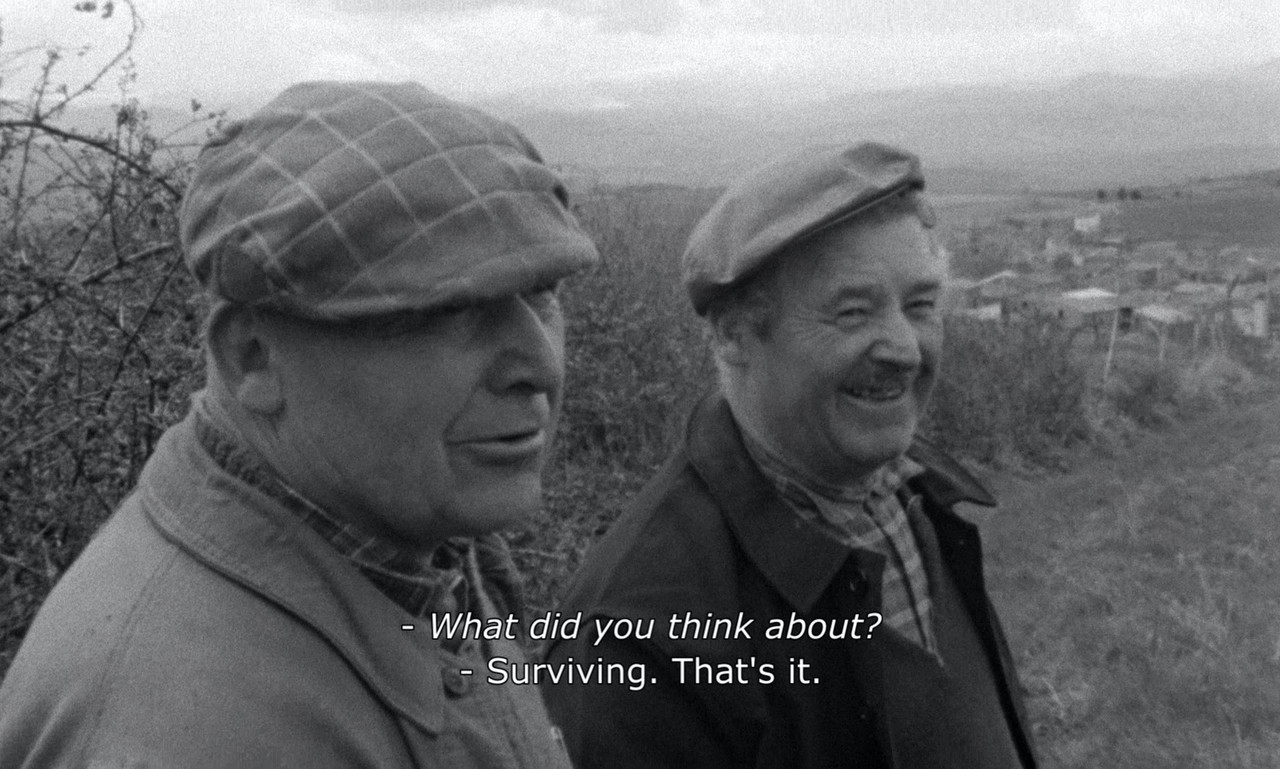“One thing I find appalling is when people who were [Vichy President] Pétain supporters come up to me and tell me what they did for the Resistance. Sometimes it's unreal. “Oh, Mr. Gaspard, if only you knew what we did, what I did for the Resistance.” Go ahead, pal, tell me all about it. I try to stay calm. I'm a salesman, and I want to sell my product. The company doesn't pay me to do politics and pick fights, so sometimes I find myself obliged to listen to a song and dance of some guy who shows me a drawer and gets his wife to confirm that there was indeed a revolver in that drawer during the war, a revolver which he was supposedly ready to use on the Germans. Only he never actually used it. History doesn't lie.” Le chagrin et la pitié [The Sorrow and the Pity] (Marcel Ophüls, 1969)
Jun
5
Sorry I Was on a Boat Day

Two smiling farmers. The interviewer asks “What did you think about?” One of them replies “Surviving. That's it.” Screenshot via. DPs: André Gazut & Jürgen Thieme.
Someone makes an excuse on Sorry I Was on a Boat Day (USA)
– Émile Coulaudon aka Colonel Gaspard, former head of the French Resistance in Auvergne
Marcel Ophüls documents the people of Clermont-Ferrand as the microcosm of Vichy France, part of Europe's only country that happily collaborated with its occupier, Nazi Germany. What were their justifications, their excuses, their motivations? Was it survival, habit, greed? Comfort, conformity, obedience, fear?
And what is yours?